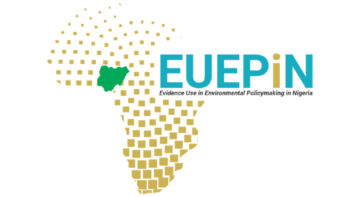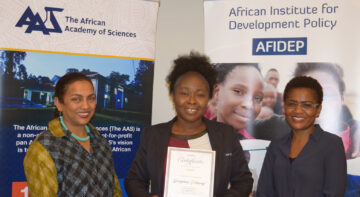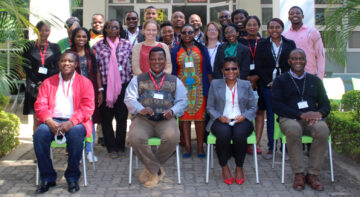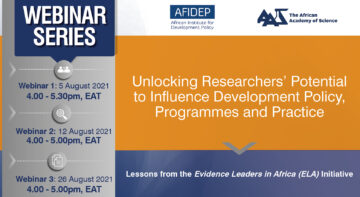Blogs
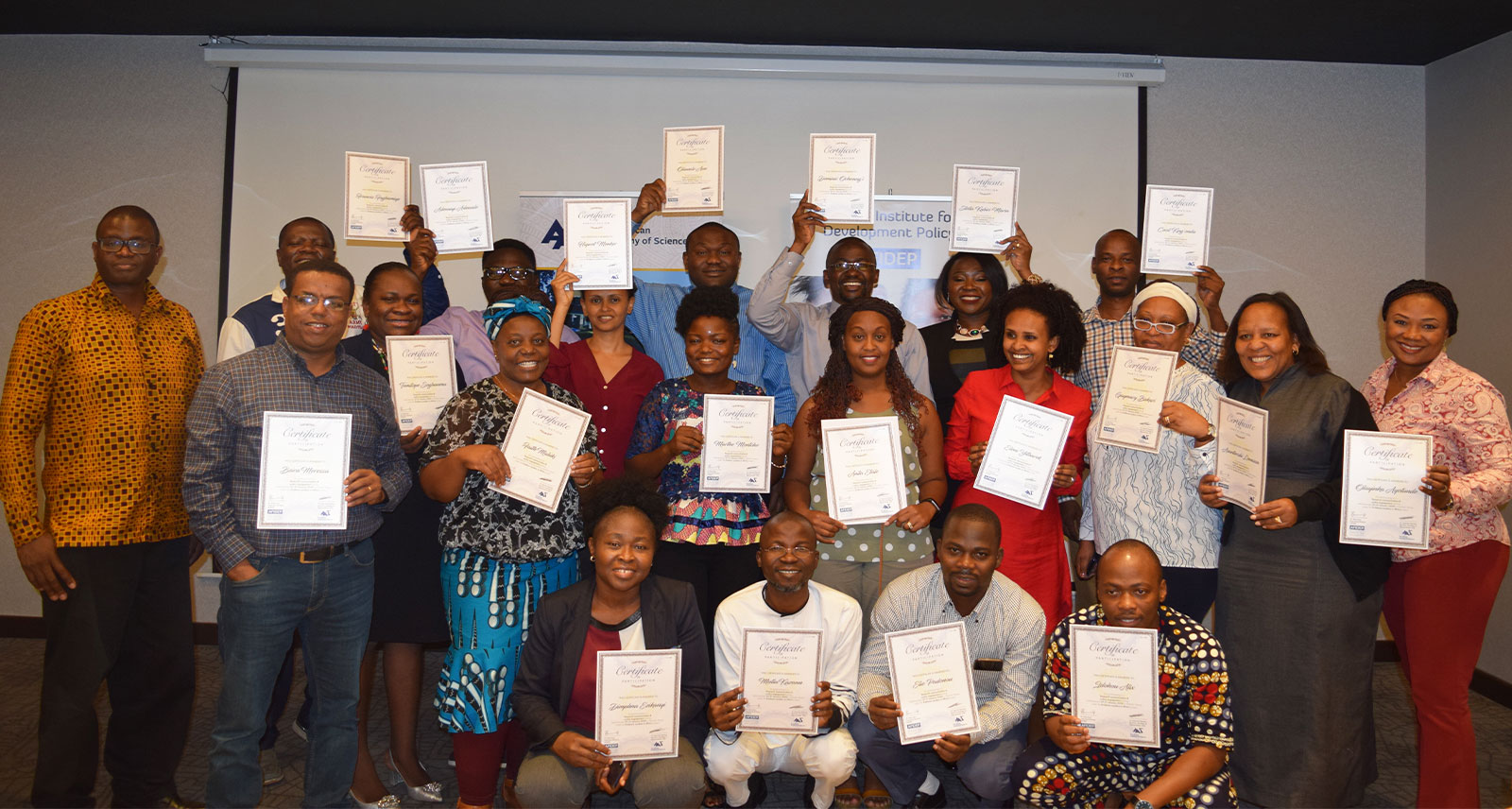
The Evidence Leaders in Africa project (ELA) kicked off the year with a five-day training workshop on research communications and policy engagement. Convened by both AFIDEP and the African Academy of Science (AAS), the workshop brought together 23 early-to-mid-career researchers from East and West Africa to build their capacity on effective research communication and policy engagement strategies. It was held in Nairobi, Kenya between 27-31 January 2020.
The convening of this training was informed by the fact that scientific communication remains one of the notable challenges that researchers in Africa encounter. This, among other challenges such as lack of funding, lack of access and availability of quality data and low uptake of research by policy-makers, undermine researchers’ contributions to policy and programme decisions.
Effective communication is crucial for researchers as it allows them to inform, educate and raise awareness about their work to various audiences. Through this, they are able to generate support for their work and inform decision-making. The training therefore aimed to equip participants with the know-how to effectively communicate with audiences particularly in the policy-making space.
Effective communication is crucial for researchers as it allows them to inform, educate and raise awareness about their work to various audiences. Share on XDuring the workshop, participants benefitted from elaborate sessions that covered various aspects of research communication and policy-engagement strategies. These included practical application sessions that broke away from theory such as crafting evidence-based policy messages, preparing and delivering elevator pitches, writing policy briefs, and preparing effective policy presentations.
Other pertinent issues that dominated the workshop were the barriers researchers encounter while engaging with decision-makers as well as the place of Evidence-Informed Decision-Making (EIDM) in informing and improving policies and practices. This was best explored during a panel discussion on linking research-to-policy. Panellists included Dr. Isavyani Naicker (Director of Partnerships – African Academy of Sciences), Mr. Francis Kundu (Assistant Director of Population – National Council for Population and Development (NCPD), Mr. Bonnie Mathooko (Chief Research Officer – Parliament of Kenya) and Hon. Dr. Makali Mulu (Member of Parliament – Kitui Central and Chair of the Kenya Parliamentary Caucus on Evidence-Informed Oversight and Decision-Making (PC-EIDM).
The panel discussion provided an opportunity for both the panellists and participants to share their experiences on interaction between researchers and policy-makers from respective perspectives. Recommendations on how best to improve this relationship were also highlighted. Policy-makers deplored the inability of many researchers to make their findings accessible, palatable and timely for policy decisions. Researchers, on the other hand, cited resistance from policy-makers to implement policy change despite convincing evidence. They also questioned whether policy-makers’ were genuinely interested in using evidence in decision-making.
On the importance of evidence in policy processes and the need for a symbiotic relationship between researchers and policy-makers, Mr. Kundu noted that, “constant interaction between researchers and policymakers is crucial to avoid situations where policies are made without being informed by evidence and problems arise at implementation stage.”
The training was apt in empowering the researchers to first, communicate their work in ways that are effective, strategic and politically strong. Second, to understand policy engagement and policy processes in various contexts. Lastly, to become EIDM champions in Africa by renewing their commitment to inculcate a culture of EIDM through promoting the uptake of the best available evidence into practice. Throughout, participants exhibited positivity to the topics and mode of training. They were enthusiastic about utilising the knowledge and skills gained to strengthen their position as change agents through research. Here are excerpts of what the participants said at the end of the workshop:
“I must say this is one of the best training I have ever attended and probably the only one to have learnt so much by end of the training. Keep up the good work you guys are doing.”
Cecil Kingondu, senior lecturer- Botswana International University of Science and Technology
“I have always wanted to produce a policy brief for my work, but I did not have the adequate skills and I found the policy writing skill very interesting. I hope I will start producing policy briefs for my research.”
Eleni Abraham Yitbarek, senior lecturer- University of Pretoria, South Africa
“I really appreciate AFIDEP for putting this together, it is really timely. The testimonies I have heard from my colleagues are positive concerning this kind of model, of transitioning from doing research to policy.”
Olushina Olawale Awe, senior lecturer – Anchor University Lagos, Nigeria
“I feel transformed! I can now look at a group, analyse it, determine my audience and design my message. I have the confidence to communicate my work and can therefore contribute to my country’s growth.”
Faith Philemon Mabiki, senior lecturer – Sokoine University of Agriculture, Tanzania
“I have never written a policy brief before and this has been an eye opener. Going forward, this training has given me capacity and the tools to write policy briefs and to communicate to policy makers.”
Dominic Omosa Ochwang’I, lecturer – University of Nairobi, Kenya
AFIDEP appreciates that getting evidence into policy is a complex task and as such is keen to bridge the gap that exists between researchers and policy-makers. We achieve this by strengthening the capacity and skills of researchers in for instance in scientific communication, evidence synthesis, policy engagement, and scenario building, through seminars and training workshops such as this one. AFIDEP will continue inspiring, engaging and empowering more researchers from across Africa to produce, synthesise and communicate research that can guide decision-making and policy-making processes to overcome challenges facing the continent.
Related Posts
